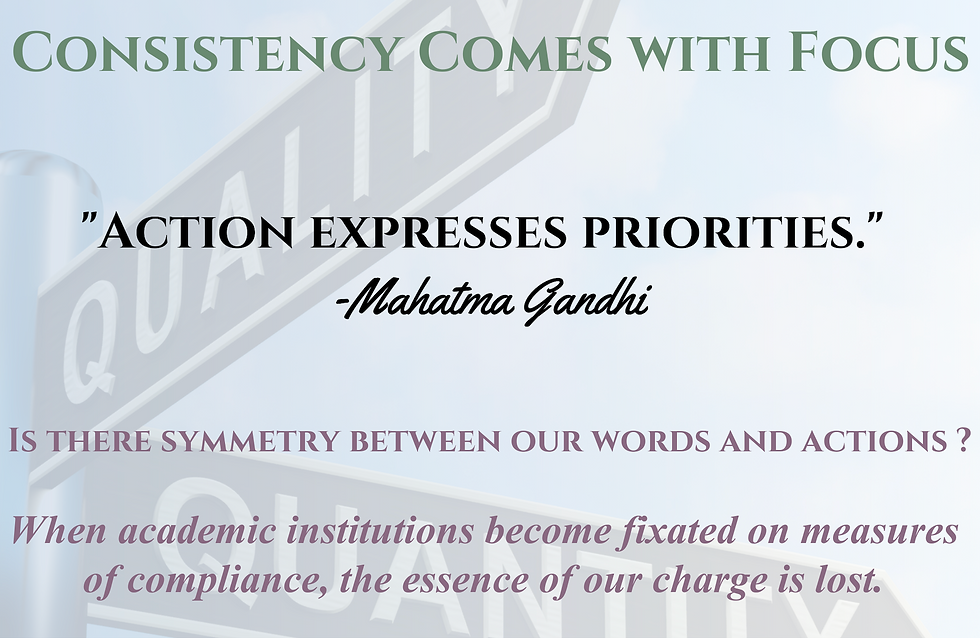Defining Purpose: Beyond the Buzz
- S.A.G.E. Vision

- May 21, 2023
- 2 min read

One of the fundamental shortcomings of the educational sector is its reliance on buzzwords. These terms of hope rarely result in any substantive change. Rather, they tend to fade away leaving a wake of fragmented and poorly devised pedagogical approaches. In reflecting on these ideas that buzz through the system, we contend that a lack of defined terms and/or agreement on meaning has fostered the disjointedness that defines the current system. As a point of illustration, we need only explore the interchangeable nature employed with terms like schooling, learning, agility, and adaptability. In these four words we suggest that this failure to adequately define terms has stifled substantive growth as leaders operate from perception as opposed to research-based agreement. In our estimation, avoiding such a disconnect begins by shifting the lens from which the notion of learning is viewed. It is only from a new vantage point that stakeholders can unravel the tangled web of terms.
By examining the subjectivity within educational parlance authentic stakeholders can garner insight into the frustrating disconnect within and across educational sectors. Without question, it has been this lack of definition that has led to an inability to establish consistency and accurately define problems. As Kraft and Furlong (2021) have stated when problems are not well defined they will go unresolved. The uneven landscape of the educational sector has resulted in a failure to significantly address problems while making attempts for cross-sectoral integration a significant challenge for policymakers. Any true shifts in our sector will require a defined set of terms that will allow policymakers to establish “high quality” pedagogical and professional policy that is authentic, apolitical, and sustainable. Unfortunately, the current climate within education leaves the prospects of such an occurrence slim as many within the bureaucratic structure benefit from the ambiguity.
When we reflect on our own experiences, we recognize that learning is not ambiguous, but a unique and individualized journey guided by one unwavering definition. In short, the nature of learning is about generating human agency (Elmore, 2019). This definition is grounded by a statement made by Dewey (1916) over one-hundred years ago when he suggested that when learners are free to explore they inherently learn. However, this definition and statement are not reflected in the decisions and policies that define the current system. As we come to the close of another academic year we are sadly reminded of how time defines learning. From end-of-the-year checklists to training that emphasizes teacher pace as opposed to pace of learning, the lens from which schooling is viewed has systematic priorities at the center of the pedagogical approach. If substantive change is going to occur stakeholders must reflect on Elmore’s (2019) critical question of purpose: Is learning about recalling and deploying facts and algorithms or modifying understanding through evidence and reflection? If authentically addressed, there is only one logical response that can shift the paradigms of mediocrity and usher in a period where the definitions of schooling and learning are one and the same.
Resources
Dewey, J. (1916). Democracy and education: An introduction to the philosophy of education.
Macmillan.
Elmore, R. (2019). The future of learning and the future of assessment. ECNU Review of Education, 2(3), 328-341.
Kraft, M. E., & Furlong, S. R. (2021). Public policy: Politics, analysis, and alternatives. (7th ed.). CQ Press.




Comments